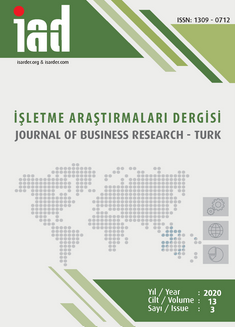Bireylerin Çalışma Düşüncesine Göre İşe Tutkunluk Düzeyindeki Farklılığın İncelenmesi
Investigation of the Difference in the Work Engagement Level according to Individuals' Thought of Work
Author(s): Mahmut Özdemir, Ahmet DOĞANSubject(s): Organizational Psychology, Behaviorism, Management and complex organizations, Human Resources in Economy
Published by: Orhan Sağçolak
Keywords: Thought of Work; Work Engagement; Vigor; Dedication; Absorption;
Summary/Abstract: Purpose – The main purpose of this study is to examine whether individuals' levels of work engagement differ according to their thoughts of work. In addition, the secondary purpose of this study is to examine whether there is a difference in thoughts of work according to demographic characteristics. Design/methodology/approach – In this study, the convenience sampling method was selected to determine the levels of work engagement and working thoughts of individuals working in the private and public sectors in Turkey. Data were collected electronically through the questionnaire. In accordance with the purpose of the research, SPSS 22.0 program was used in the analysis of quantitative data. Findings – In the analysis process, it was found that individuals who generally consider working as a curse, commodity, and suffering have significantly lower work engagement compared to those who consider working as freedom, identity, and service. In addition, statistically significant differences were found in the thought of work according to gender, education level, age, duration of experience, and the sector employed. However, according to marital status, monthly earnings, and position, it was observed that there were no statistically significant differences in the thought of work. Discussion – The thought of work, the reference frames that individuals create shape their understanding and practices towards their work through values and attitudes. At this point, the results of this study can contribute to both provisions of individual benefits such as giving meaning and value to life and work, increasing job satisfaction, and organizational benefits such as organizational commitment and motivation.
Journal: İşletme Araştırmaları Dergisi
- Issue Year: 13/2021
- Issue No: 3
- Page Range: 2203-2222
- Page Count: 20
- Language: Turkish

